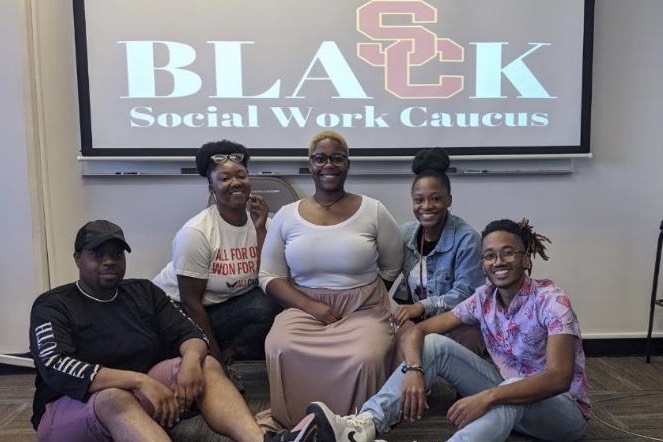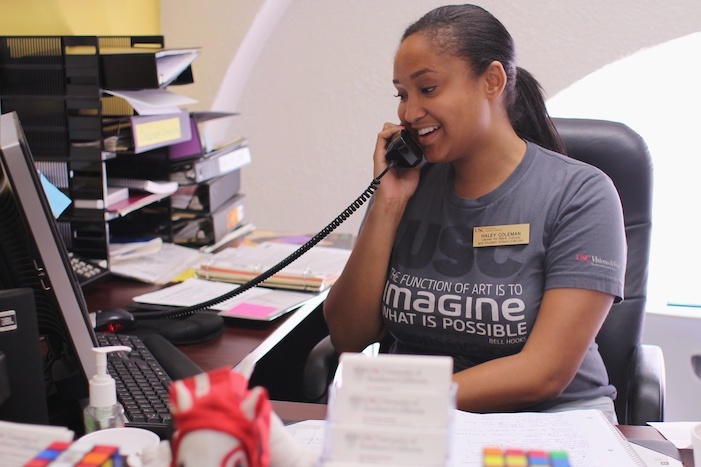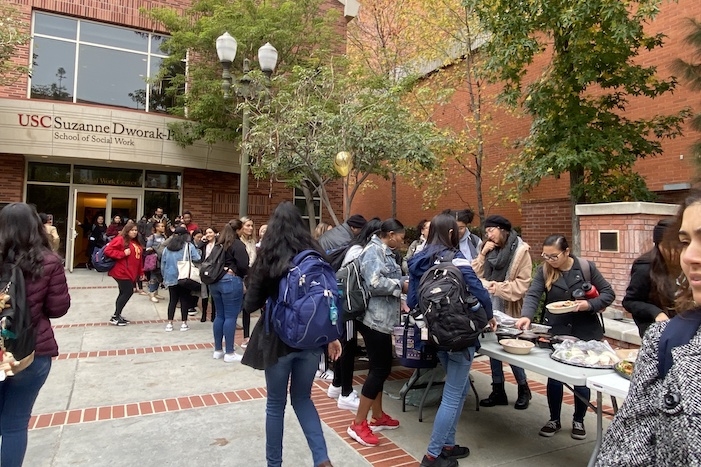Primary Care Project
What is the Primary Care Project?
- The Primary Care Project helps MSW students from disadvantaged backgrounds fulfill their training in integrated behavioral health services within a primary care setting as part of their final MSW internship. Each year, selected students will receive up to a $30,000 scholarship.
- Participants must meet the federal definition of a student from a disadvantaged background, which includes under-represented minorities (URMs), first-generation students, and those considered educationally, environmentally, or economically disadvantaged.
By The Numbers
Project Goals
The Primary Care Project’s goal is to train 110 MSW students from 2020 to 2025 to provide integrated and interprofessional behavioral health services in primary care settings for vulnerable populations. In addition to the scholarships awarded to students, the school will commit $10,010 of cost sharing annually.
The goals of the PCP are:
- Recruiting, increasing, and retaining MSW students from disadvantaged backgrounds who are committed to working in primary care settings;
- Improving education and preparation of MSW interns from disadvantaged backgrounds to work in primary care settings;
- Increasing the number and capacity of primary care agencies offering MSW internships; and
- Supporting participants to gain employment in primary care/integrated behavioral health settings.
This scholarship is funded by a federal grant from the Health Resources and Services Administration through its Scholarships for Disadvantaged Students (SDS) program.
Program Details
This one-year scholarship of $30,000 is available annually to 22 students enrolled in the MSW program at the campus-based and Virtual Academic Center (VAC) who will graduate in the spring or summer semesters of their last year. The scholarship is funded by a federal grant from the Health Resources and Services Administration (HRSA) through its Scholarships for Disadvantaged Students (SDS) program.
The scholarship will be awarded to students who are committed to providing behavioral health/primary care services in medically underserved communities (MUCs) in Southern California and throughout the United States. To be eligible, recipients must complete qualified practicum placements that offer direct practice in integrated health/behavioral health settings. Additionally, students must meet the federal definition of a student from a disadvantaged background, which includes being economically, educationally, or environmentally disadvantaged. Those selected for the PCP will receive training in integrated behavioral health/primary care internships and will be expected to seek employment in behavioral health/primary care settings with a focus on MUCs upon graduation.
Please note that this program is a federally funded and awarded annually.
To be eligible for the 2023-2024 PCP scholarship, recipients must do the following:
- Complete the Free Application for Federal Student Aid (FAFSA). Be sure to add USC Federal School Code: 001328.
- Meet eligibility criteria based on HRSA guidelines and definitions for economically, educationally, and environmentally disadvantaged backgrounds: please review Economic Disadvantage – 2023 Federal Poverty Guidelines and HRSA Scholarships for Disadvantages Students (details on pages 4-7 of the HRSA-20-006). Economic Disadvantage: Family income below federal poverty guidelines, as determined by FAFSA data and tax returns. Please refer to the chart at the end of PCP Information Sheet for 2023 Federal Poverty Guidelines.
- Educational Disadvantage: Graduation from low performing high school.
- Environmental Disadvantage: For example, but not limited to: first generation college student, history of poverty, illness, single parent status, history of foster care, experiencing homelessness, history of substance dependence and recovery, or other life circumstances.
- Tax Returns/Evidence of Dependency Status: Please be prepared to provide copies of Federal Tax Return form 1040 for the past three years (tax years 2021, 2022, & 2023) to maintain eligibility. If you are 24 years old or younger OR listed as a dependent on someone else’s return at any time during the past three years, you must also provide copies of the parent/guardian family’s tax return for the past three years.
- Be a citizen or national of the U.S., or a lawful permanent resident, or a foreign national having in their possession a visa permitting permanent residency, or a non-citizen national (individuals on temporary or student visas are not eligible to participate).
- Submit a valid state-issued photo identification, passport, or birth certificate.
- Graduate in spring or summer 2024.
Application Process and Timeline
- For students graduating spring or summer 2024, please carefully review the Primary Care Project Information Sheet 2023-2024, Fifth Cohort for more details.
Fifth cohort, 2023-2024 applications will be open and accepted between January 8, 2024 and May 3, 2024. Priority consideration will be given to applications received by March 8, 2024. The selection process may extend into the summer and will be based on the students who best fit the criteria and requirements of the scholarship program.
- Step 1: Submit an application which requires responses to determine eligibility criteria based on HRSA guidelines and definitions for educationally, environmentally, and economically disadvantaged backgrounds. Applicants determined to meet basic eligibility criteria will move forward to Step 2.
- Step 2: Applicants will be required to submit responses to the following four essay questions on interest and commitment to work in a primary care setting (direct practice site) providing behavioral health in medically underserved communities (MUCs).
- Why are you interested in applying for the Primary Care Project?
- What do you hope to gain from your field placement experience?
- What knowledge, skills and abilities do you possess that you would be able to contribute to your field placement?
- What are your career goals related to providing integrated behavioral health services in primary care settings within medically underserved communities?
- Step 3: Applicants are required to submit all supporting documents as requested. Incomplete applications will not be considered.
- Questions regarding the HRSA application status can be sent to Dr. Suh Chen Hsiao. Applicants will receive notice of award by email summer 2024.
Involved Faculty
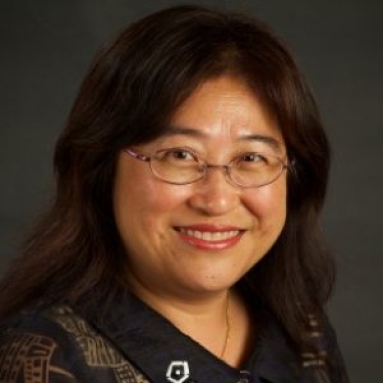
Suh Chen Hsiao
Director of Practicum Education
Associate Professor of Social Work Practicum Education
Principal Investigator, Primary Care Project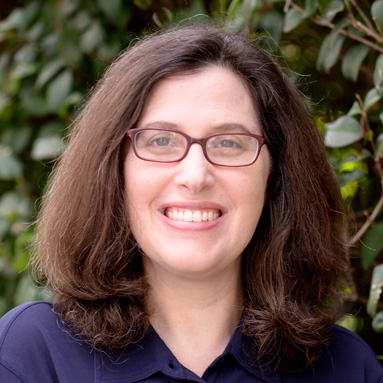
Ruth Cislowski
Assistant Director of Social Work Practicum Education
Associate Professor of Social Work Practicum Education
Co-Investigator, Primary Care Project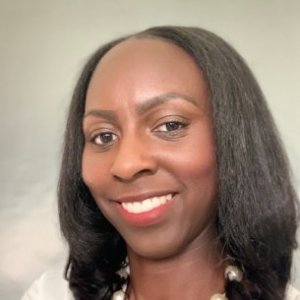
Jenebah Lewis
Associate Professor or Social Work Practicum Education
Co-Investigator, Primary Care Project
Melissa Singh
Associate Professor of Social Work Practicum Education
Co-Investigator, Primary Care Project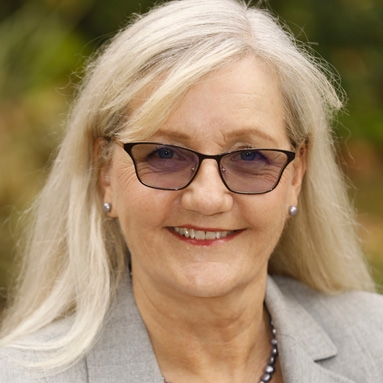
Ruth Ann Supranovich
Associate Dean, Community and Clinical Programs
Professor of Social Work Practicum Education
Co-Investigator, Primary Care Project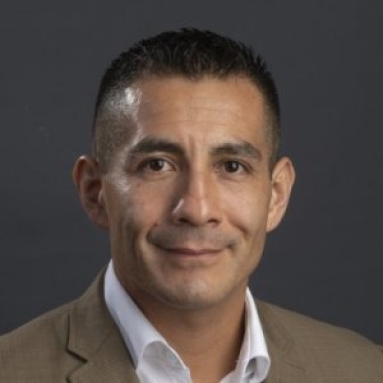
Omar Lopez
Assistant Dean, Office of Recruitment and Workforce Development
Professor of Social Work Practicum Education
Co-Investigator, Primary Care Project
Quote
The increased need for competent social workers to work in primary care settings in California is acute, particularly in historically underserved communities. The scholarship is one way to create opportunities for students to pursue practice in their communities without the worry of unmanageable student loan debt.
- Suh Chen Hsiao, director of social work practicum and principal investigator
Resources for Students from Disadvantaged Backgrounds
School of Social Work Student Caucuses
- Black Social Work Caucus
- Latinx Social Work Caucus
- Queer Alliance Social Work Caucus
- Unchained Scholars Interest Group
- Jewish Social Work Caucus
University-Wide Student Resource Centers
Diversity, Equity and Inclusion at USC

Our Commitment to Racial Justice
The USC Suzanne Dworak-Peck School of Social Work is dedicated to eliminating racial injustice and promoting an ongoing process of healing and reconciliation to dismantle racism.
